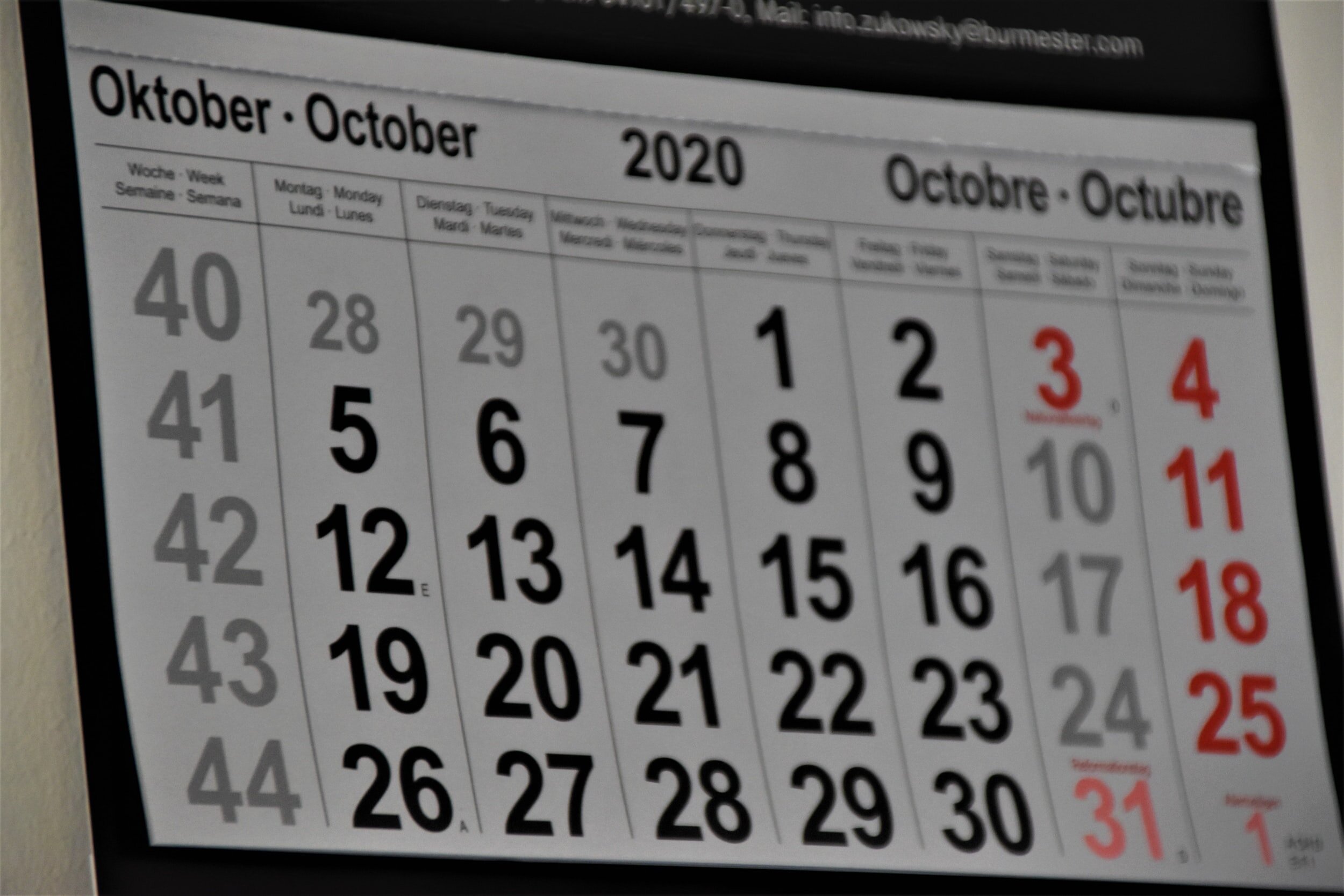Your Complete Guide To NaNoWriMo Success
So, you've decided that you want to try the NaNoWriMo challenge? Congratulations!
NaNoWriMo is a test of endurance and creativity and by the time December rolls around, you'll know more about yourself and your capabilities as an author.
In many ways, NaNoWriMo is a lot like a sport: to complete the race and win the challenge, you must first prepare and train.
This guide will help take you through some preparatory steps—and a suggested timeline—for preparing to write your novel and signing up for the challenge. It also takes you through some of the pitfalls of NaNoWriMo itself.
Before September: Make a Decision
It's impossible to stick to a goal if you have not first made a commitment to yourself to complete.
Ask yourself honestly if you are going to have time to write 50,000 words in a month, and mentally plan out a little bit about how you plan to do that. If you think you're ready, then go for it!
Mid-September to Early October: Sign Up, Select Your Region & Start Earning Badges
After you've made the decision to participate, you'll want to go to Nanowrimo.org to sign up. In order to update your word count in November, you'll need to set up an account in October. At this point, you'll fill out a profile, and "create" your novel by choosing a title (which you can always change later). If you'd like, you can also type a synopsis and excerpt as well.
(Note: while the official instructions say that you can start creating your novel starting in October, the link to do so often appears earlier.)
There are tons of related NaNoWriMo events before and after for participants. By adding your region, you can find other participating writers and local resources that can help you to succeed. You should plan to attend at least a few of these—they're often with experienced writers and participants who can help guide you.
At this point, you can also start earning badges, which will tell the world about your achievements. While you're at it, why not check out the list of prizes that you can win for participating!
October: Prepare, Prepare, Prepare
Writing a novel is a process that takes a lot of planning and preparatory steps. While it certainly is possible to start everything in November, you'll end up making things a LOT harder on yourself.
Instead, use the month of October to get as much of the prep work done as possible. This includes both pre-writing works, but also mental preparation as well.
Before October 8: Decide On A Writing Schedule
It's something that is often swept under the rug, but setting up a feasible, well-thought-out schedule is one of the most important parts of the process. Not only will this solidify your commitment, but it will help you build a ritual that will allow you to use your time wisely.
As an extra bonus, if you can train your brain to write at a certain time of day, then it'll make the writing process that much easier.
The goal is to write 50,000 words in 30 days, which comes up to 1,667 per day, or about five pages. Is it easier for you to write that in one big chunk in the mornings, or in smaller pieces throughout the day? Are you more creative in the morning or night? When do you likely have the most flexibility and time in your day or week? When are you likely to be distracted by other obligations? These are all things that you need to decide now.
Once you've answered these questions, then write down the schedule.
October 9: Start Following Your Schedule
October 9 is about 3 weeks from the start of NaNoWriMo. It might seem strange to start following your schedule three weeks early, but that's about how long it takes to form a habit. If your schedule is the right one, then you'll have the routine well set before it's time to really start writing. If it's not going to work, then you'll know before November comes and be able to adjust accordingly.
October 9-16: Prepare Your Space and Develop A Plan
Use this time wisely. There is a lot to do to prepare yourself for getting ready to write this novel. The first thing you're going to want to do is to prepare a dedicated space for writing. Like having a schedule, this helps you to get in the right mindset for writing.
Your workspace should be somewhere that is out of the way and conducive to writing. This might be a spare room, or a coffee shop, or a park—whatever works for you! If necessary, prepare and clean the space and decorate it, if it helps you feel more creative.
Then, start developing a plan for your prep work. Here are some of the things you'll want to consider doing:
Look for inspiration. Old newspapers, family albums, even lines from poems or poetry exercises can be a great place to start.
Think of a rough timeline.
Develop rough character sketches of some of the primary characters.
Mentally envision the setting.
Plot out the plot by storyboarding.
Complete exercises to further flesh out the plot.
Complete character sheets for each character (even support characters).
Do other character creation exercises to further flesh them out.
Answer the 5 W's (who, what, when, where, and why) for each character and for at least three points in the story to help you see how all the pieces fit together.
Build a dynamic world by writing a series of world-building exercises.
Writing is lonely work. Plan to get out and network with other participants once a week or so.
Write a detailed timeline, complete with chapter divisions, if need be.
Start free-writing. You can try writing some scenes from the perspectives of other characters, as long as you don't intend on using them as part of the novel. This will help you to prepare writing about the characters and their world.
Remember to eat.
Remember to sleep.
October 16-31: Follow the Plan
After you've developed the above into a plan, follow it! It'll help you get the important prep work done and get you in the habit of writing.
By the time November 1st comes, you should know what you're planning to write, who it's about, and how much you can plan to get done per day. Of course, writing never goes according to plan, so give yourself some leeway and expect the unexpected.
November: NaNoWriMo is Here!
November 1-8: Hit the Ground Running
Target: 12,500 words
After three weeks of prep work, you probably feel like you have so much to write that you're going to explode. Use this time! A slump mid-month is inevitable, so the more you can get written now, the better. During this first week, focus on getting as much down on the page as possible.
November 9-16: Don't Give Up Or Start Editing
Target: 25,000 words
Hopefully, you've got a good bit on the page—at least 12,500 words or so, or around 40 pages. Right about now, you're probably thinking that you need a break! Your muse might well be feeling the same way. The important thing here is to not give up, or doubt yourself, or edit. Keep writing. And, if you can't think of how to write the next chapter in order, then jump ahead or write some of the events that happened before the start of the novel.
If you have a day where you really can't think of anything to write, that's okay—give yourself a break and plan to write more the next day.
November 17-24: Don't Panic!
Target: 35,000
November is over halfway over! It's easy to start panicking at this point. Don't. And, don't let your inner editor convince you to look back over your work. Keep writing.
If you can't think of anything with your novel, then write a grocery list, or do some freewriting. It'll all make sense eventually.
You might notice that the word count is slightly reduced. During this week, there are likely more distractions than usual because of the holidays, so it might be a good idea to alter your schedule a little bit to accommodate the changes in plans.
If you're done, you can upload your novel as of the 20th. If you're not done, it's probably not a good idea to visit the site until you're done.
November 25-30: The Final Sprint
Target: 50,000
You're almost there! Don't give up. The most important thing here is to decide where you're ending the work; novels often theoretically could go on forever, but you need to find a nice stopping point that will give your reader—and you—a sense of closure.
This week, you'll also validate your word count. If you're using a word processor, all you have to do is copy and paste your novel into the word validator. If you're hand writing, then you'll need to get a friend to validate for you and then copy and paste the same number of words from a random word generator. If you're writing it by hand, you'll need to plan ahead to give your friend time to read over the work.
At the end of this week, you'll also reap the rewards—including bragging rights and some truly awesome prizes!
Planning ahead is probably the most important part of NaNoWriMo. But, as you go, if you're struggling, reach out for help: every writer struggles at some point or another.
At the end of November, you should have the first draft of your very own novel. Take a little while to pat yourself on the back, celebrate, and give your brain some much-needed rest. Then, once you're ready, settle in because the real work is about to start.
What If You Don’t Finish?
If at first you don't succeed, try, try, and try again.
NaNoWriMo is a remarkable initiative that has helped thousands of writers achieve what they may have once thought was impossible—finishing their book. But what works for one writer may not work for another.
One month is a tight deadline, serving as incredible motivation, but perhaps being too restrictive for some. If you find that you weren’t able to complete NaNoWriMo, for whatever reason, you should be giving yourself a hefty congratulations nonetheless. Taking on the challenge in the first place was admirable and speaks to your determination to get your story written.
If you feel that you benefited from the accountability of the challenge, but that the timeframe was too tight, consider our 12-month challenge. We’ll keep you motivated along the way and at the end of the year, your literary consultant will be ready and waiting to assess your manuscript, helping you polish it up for publication.
Congratulations to all NaNoWriMo participants, past and future!





